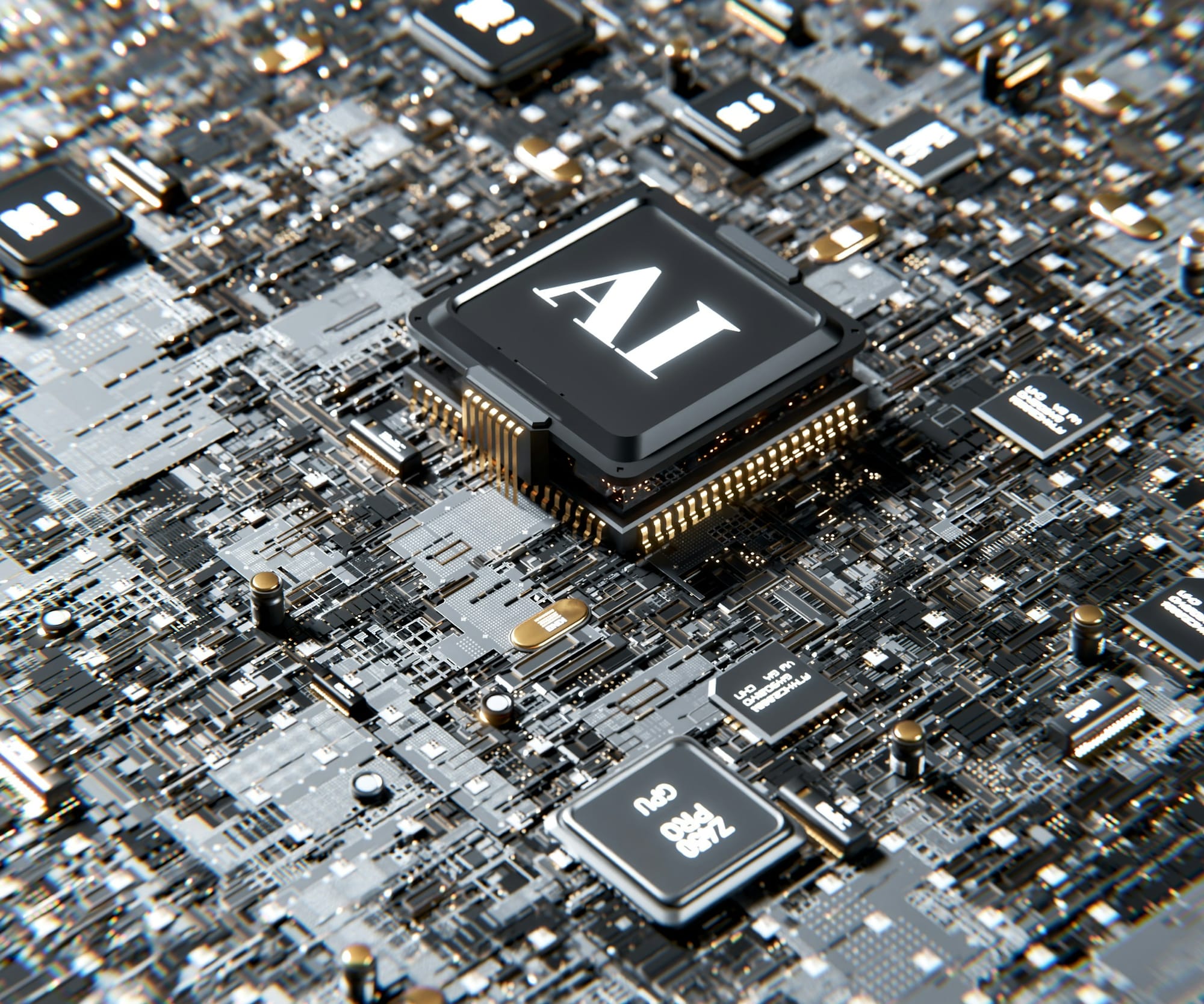Every website has visitors and goals. Some web applications, like online stores, aim to increase sales, while others, like educational platforms, help users learn a topic. No matter the goal, achieving it can be challenging. For example, an e-commerce site might attract a fair amount of traffic, but the website isn’t meeting its objectives if visitors don’t make any purchases or abandon their carts. Artificial intelligence in web applications can help solve this challenge and enhance performance. This piece will explore the significance of AI in app development and web applications and how to leverage its capabilities to improve functionality, user experience, and efficiency.
Lamatic's Generative AI tech stack can help you achieve your goals by seamlessly integrating AI into your web applications. With this solution, you can enhance functionality, boost user experience, and improve efficiency.
What is the Importance of AI in Web Development?

Artificial Intelligence (AI) is changing the way we build websites. These innovative technologies can analyze data, learn from it, and apply the findings to improve your website’s performance. As a result, integrating AI in web development helps create dynamic, personalized, and user-friendly sites that fully cater to visitors’ needs.
For instance, AI can boost your website’s ability to deliver personalized content to users by analyzing their behavior and preferences. It can also enhance your site’s overall security by monitoring activities in real-time to detect and counter threats more intelligently. These capabilities lead to better user experiences and higher customer satisfaction and retention rates.
The Importance of AI in Web Development
Integrating AI tools into web development is not just a passing trend—it’s necessary in our fast-paced, digital-first world. These tools bring an array of benefits to developers and businesses alike.
AI tools help automate routine tasks, reducing the time and effort invested in web development. More importantly, they enhance websites’ functionality by providing personalized user experiences.
Implementing AI in Web Development: Enhancing User Engagement and SEO Optimization
They can analyze user behavior to deliver relevant content, suggest products or services, and even answer real-time queries through AI-powered chatbots. But that’s not all. AI tools can significantly boost a website’s visibility on search engines by helping developers adhere to SEO best practices.
Hence, including artificial intelligence and its tools in web development is critical in driving business growth in creating:
- Dynamic
- User-friendly
- Highly optimized websites
Understanding the Role of AI in Web Development
Artificial Intelligence (AI) has ushered in a new era of possibilities in web development. Its implementation is much more than just a technological novelty; it’s about enhancing efficiency, productivity, and user experience. Central to this revolution are AI tools. These tools allow developers to automate routine tasks such as:
- Code generation
- Error detection
- Layout design
Leveraging AI-Powered Design and Coding Tools to Streamline Web Development Processes
For instance, AI-powered design assistants can generate aesthetically pleasing and responsive web design templates based on user preferences. On the coding side, AI tools can auto-complete code, significantly reducing development time.
This use of AI streamlines web development and allows developers to focus on more complex tasks, enhancing the overall quality of the final product.
Related Reading
- Fine Tuning AI Models
- How to Integrate AI Into an App
- AI API Integration
- How to Fine Tune GPT
- How to Use AI in an App
- How to Integrate ChatGPT Into an App
- How to Integrate AI Into Smart Home Application
Top 10 Ways to Integrate Artificial Intelligence in Web Applications

1. Make Coding Efficient
One of the essential functions of artificial intelligence is automation, which can be used advantageously in coding. AI can generate working code quickly and reduce the time and effort needed to complete the coding. Developers can prototype fast and complete repetitive work, resulting in quicker and more efficient software development.
AI can facilitate code reviews and identify improvements in code, which also helps in knowledge transfer and reduces the learning curve for beginners. Examples of web development with AI coding tools include ChatGPT and Copilot by Github.
2. Improve User Experience
For successful web development, excellent user experience is vital. Easy navigation, faster loading, relevant content, design, etc., help create a good user experience. AI can improve User Experience (UX) with this:
Chatbots
Chatbots using AI can provide good user interaction. They respond to queries quickly, guide visitors through a site, and assist with transactions. For chatbot creation and implementation, top developers use platforms like:
- IBM Watson
- Microsoft Bot Framework
- Hubspot
An example of an AI chatbot is Amazon Lex, a fully managed AI service using advanced natural language models. It designs, creates, tests, and deploys conversational interfaces in applications. This automated chatbot designer helps create an initial bot design that can be defined and launched efficiently.
3. SEO with AI: Make Your Business Visible to Target Customers
Without a high ranking in search engines, businesses remain invisible to target customers. Using AI, companies can power their SEO campaigns to outrank their competition. Web development with AI tools for SEO ensures that all the tedious work needed can be done quickly and efficiently.
AI can analyze vast amounts of data and provide valuable insights. Automating various optimization processes saves businesses time and resources.
4. AI-Powered Prototyping
AI-powered prototyping helps developers focus on a design’s key features, enabling a faster product to market. The process is quicker and more user-focused in web development with AI rapid prototyping. Greater accuracy and efficient design are possible.
AI-powered prototyping efficiently handles many tasks needed to create a prototype, such as generating layout options, creating interactive elements, and testing design usability. Designers can save time and effort by prototyping with AI. For instance, different layout options for an app or website can be created. The designer needs to choose the most effective layouts and add interactive elements.
5. Security
Cybersecurity is crucial to web development as robust security ensures the website is free of security breaches and hacks. Artificial intelligence can perform an in-depth analysis of a website’s data. AI can identify unusual patterns that may be due to a security breach.
Faults in coding that cause vulnerabilities that hackers can exploit can be identified effectively. In web development with AI, there are a variety of tools that can help bolster security.
6. Personalize User Experience
In web development with AI, tools that help personalize user experience work by analyzing user behavior and preferences to create customized experiences. Some examples of personalizing user experience are changing the language according to location or changing search results to match a particular age group.
7. Website Building
Web designing tools and services using artificial intelligence make the task easier. The main objective of web development with AI website-building tools is to provide enhanced accessibility across different audience demographics.
8. Natural Language Processing
Back-end developers can employ NLP in web applications to process and understand natural language inputs from users. By integrating NLP APIs, web applications can provide conversational interfaces, allowing users to interact with the system using natural language queries.
NLP-powered chatbots and virtual assistants can handle customer inquiries, provide support, and execute tasks based on user instructions. The back end processes these interactions, interprets user intent, and generates appropriate responses, resulting in more intuitive and user-friendly experiences.
9. Intelligent Resource Management
The explosive growth of artificial intelligence (AI) as a disruptive technology is transforming several industries, including resource management. Resource distribution, which involves distributing resources like time, money, and labor to achieve optimum efficiency and production, is a crucial component of every company.
Thanks to artificial intelligence (AI) development, custom web development companies may optimize resource allocation strategies and applications. This leads to significant:
- Cost savings
- Increased effectiveness
- Better decision-making
10. Automated Testing & Debugging
Locating and fixing faults in complicated backend systems can take much time and effort. AI can significantly streamline the testing and debugging processes in backend web development.
AI-driven testing tools can automatically identify bugs, vulnerabilities, and performance bottlenecks, enabling faster bug resolution and improving software quality. This allows for faster troubleshooting, less downtime, and less impact on end users.
Enhancing Web Development with AI-Powered Automated Testing and Debugging Tools
The best-automated tools for testing and debugging your website are:
- DeepScan
- Codacy
- Testim
The impact of automated testing with AI in web development is:
- Faster and more efficient testing process.
- Increased test coverage, identifying more bugs and vulnerabilities.
- Reduced human error in testing and debugging.
- Continuous monitoring and real-time bug detection.
- Improved software quality and reliability.
- Enhanced security by proactively identifying potential threats.
- Streamlined debugging and bug resolution.
Real-Life Examples of Implementing AI in Websites
After integrating AI into their platforms, leading tech giants and innovative services have set:
New personalization, engagement, and functionality standards.
Let’s explore how Google, TikTok, Netflix, and Spotify harness the power of AI to transform their web offerings.
Google: AI for Search Algorithms, Image Recognition, and Personalized Recommendations
Google is a prime example of AI-based web development, leveraging artificial intelligence across multiple aspects of its services.
- Search Algorithms: Google’s search engine uses AI to understand and process search queries, providing the most relevant results. The AI-driven algorithms constantly learn from user behavior, refining search results to meet user intent more accurately.
- Image Recognition: Through tools like Google Photos and Google Lens, Google employs AI to recognize and categorize images. It enables users to search by image content rather than just text.
- Voice Search: Google’s AI-powered voice search allows users to find information, navigate apps, and control smart devices using natural language. It demonstrates how to implement AI in websites to enhance user interaction.
- Personalized Recommendations: AI algorithms deliver personalized content recommendations in their services, from search results and ads to YouTube video suggestions, tailoring experiences to individual user preferences.
TikTok: AI for Content Recommendation, Video Effects, and User Engagement
TikTok’s explosive growth can mainly be attributed to its use of AI algorithms, particularly in enhancing user experience and engagement.
- Content Recommendation: TikTok’s AI-driven recommendation engine analyzes user behavior, such as video interactions, likes, and shares, to curate a personalized video feed. This real-time personalization keeps users engaged and returning to the app.
- Video Effects: AI is also behind TikTok’s dynamic video effects, which allow users to apply filters, alter backgrounds, and use augmented reality (AR) features seamlessly. This showcases how AI integration in web development can enhance creative expression.
- User Engagement: The platform’s AI algorithms are continually refined to keep users engaged by serving content that resonates with their preferences, demonstrating AI’s powerful role in driving user retention.
Netflix: AI for Content Recommendations, Video Compression, and Original Content Creation
Netflix is a leader in using AI and ML for web development, particularly in personalizing content delivery and optimizing user experience.
- Content Recommendations: Netflix uses AI to analyze viewing habits and preferences to recommend shows and movies tailored to each user. This personalization is key to retaining subscribers and encouraging them to explore new content.
- Video Compression: AI is crucial in optimizing video quality while reducing data usage. This is especially important for streaming on devices with varying network speeds, making it an essential aspect of AI website development for streaming services.
- Original Content Creation: Netflix employs AI to analyze data and predict which types of content will be successful, guiding its decisions on original productions. This use of AI in web development is a testament to how AI can influence business strategies in entertainment.
Spotify: AI for Music Recommendations, Playlist Generation, and Audio Quality Enhancement
Spotify uses AI to create personalized music experiences.
- Music Recommendations: Spotify employs AI to analyze listening habits and creates personalized playlists like “Discover Weekly” that introduce users to new music based on their tastes.
- Playlist Generation: AI curates playlists based on user preferences and contextual data, such as time of day or activity, showcasing how to integrate AI into websites to offer dynamic content.
- Audio Quality Enhancement: AI algorithms optimize audio quality by adjusting sound levels and enhancing clarity. It ensures users enjoy the best possible listening experience, which is essential for audio platforms.
Related Reading
- List of Generative AI Tools
- Create Your Own AI Application
- Generative AI Applications
- How to Build AI Software
- ChatGPT Integration Services
- Custom ChatGPT Integration Services
- AI Integration Services
- Best Generative AI API
- AI Integration Strategies
- AI Integration Tools
- Best AI APIs
- Benefits of APIs
Challenges and Considerations When Using Web Applications

Bias and Fairness: Addressing AI’s Reflection of Human Prejudice
AI algorithms reflect the biases of their human creators. As an AI developer, you must ensure your data is inclusive and diverse to mitigate bias. Auditing algorithms for unfair impacts on marginalized groups is also crucial. Consider consulting experts on responsible AI practices to diminish bias further.
Data Privacy: Protecting Sensitive Information in AI Applications
AI applications often rely on large datasets to function. These datasets frequently contain personal information that can identify specific users. Collecting and using people’s data comes with a responsibility to protect their privacy.
Cybersecurity management is a must. Follow data privacy laws and regulations—Anonymize data when possible. Allow users to opt out of data collection. Be transparent about how data is gathered and used.
Job Disruption: Implementing AI to Augment Human Capabilities
AI may transform many industries and jobs. Think about how to implement AI to augment and enhance human capabilities rather than replace them outright. Provide opportunities for workers to gain new skills and transition into AI-related roles.
Lack of Transparency: Making AI Understandable for Users
Many AI techniques are based on complex algorithms and neural networks that are opaque and difficult for people to understand. Ensure your AI systems can be audited and you know how they work well enough to:
- Fix issues
- Answer people’s questions
- Take responsibility for their outcomes
Consider using “explainable AI” methods that provide insight into how the AI arrived at its results or decisions.
Related Reading
- Filestack Alternatives
- Amazon Lex Alternatives
- DeepBrain AI Alternatives
- Clarifai Alternatives
- Wit.ai Alternatives
- DeepAI Alternatives
- Anthropic API vs OpenAI API
- Anthropic API vs Claude
Start Building GenAI Apps for Free Today with Our Managed Generative AI Tech Stack
Lamatic offers a managed Generative AI Tech Stack. Our solution provides:
- Managed GenAI Middleware
- Custom GenAI API (GraphQL)
- Low Code Agent Builder
- Automated GenAI Workflow (CI/CD)
- GenOps (DevOps for GenAI)
- Edge deployment via Cloudflare workers
- Integrated Vector Database (Weaviate)
Lamatic empowers teams to rapidly implement GenAI solutions without accruing tech debt. Our platform automates workflows and ensures production-grade deployment on edge, enabling fast, efficient GenAI integration for products needing swift AI capabilities. Start building GenAI apps for free today with our managed generative AI tech stack.





